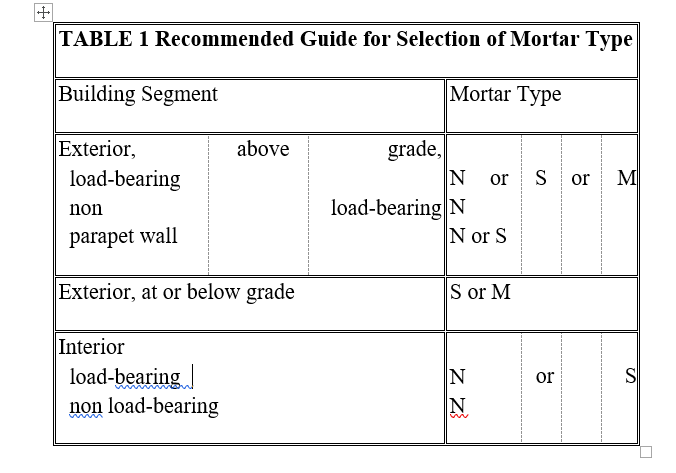What is Mortar?
Mortar is a mixture of sand and cements that is most often used to build brick or block walls. In my July blog on cement and concrete I dealt exclusively with portland cement products and uses. I also promised that at a later date I would talk about the masonry world. For those of you on the edge of your seats since then, well today is your lucky day.
While Portland cement concrete is certainly one of the most widely used building product in the world, masonry mortar is close behind. It is doubtful that you live or work in a building that doesn‘t have mortar in it somewhere. The 3/8‖ gray line of material that separates the brick or block is mortar. Mortar is a very different animal than concrete. Concrete is designed to be used in thicker applications and to reach very high strengths. It achieves its durability through brute force. Mortar is also designed to be durable but achieves its goal through finesse.
Its strengths are quite low compared with concrete and it is never used in thick applications. It is much creamier and more workable than concrete. If you play tennis, think of concrete as your most powerful serve when you are trying to smash the ball into or through your opponent so that they can‘t return the serve. Then think of mortar as a very gently placed lob close to the net that gets your opponent leaning the wrong way with no chance of returning the ball. Both achieve the desired result of earning you a point. The point of this long winded analogy is to let you know that using concrete and mortar interchangeably will lead to disaster.
Types of Masonry Cement & Mortar
CEMEX‘s Masonry Cements are produced in Type N Masonry Cement, Type S Masonry Cement and Type M Masonry Cement strength levels for use in preparation of ASTM Specification C-270 Type N, M or Type S Masonry Mortar, respectively without any further additions.
Table 1 is a general guide for selection of mortar type. Other factors, such as type and absorption of masonry unit, climate and exposure, applicable building codes, and engineering requirements should also be considered.

Mortar is a mixture of sand and cements that is most often used to build brick or block walls. In my July blog on cement and concrete I dealt exclusively with portland cement products and uses. I also promised that at a later date I would talk about the masonry world. For those of you on the edge of your seats since then, well today is your lucky day.
While Portland cement concrete is certainly one of the most widely used building product in the world, masonry mortar is close behind. It is doubtful that you live or work in a building that doesn‘t have mortar in it somewhere. The 3/8‖ gray line of material that separates the brick or block is mortar. Mortar is a very different animal than concrete. Concrete is designed to be used in thicker applications and to reach very high strengths. It achieves its durability through brute force. Mortar is also designed to be durable but achieves its goal through finesse.
Its strengths are quite low compared with concrete and it is never used in thick applications. It is much creamier and more workable than concrete. If you play tennis, think of concrete as your most powerful serve when you are trying to smash the ball into or through your opponent so that they can‘t return the serve. Then think of mortar as a very gently placed lob close to the net that gets your opponent leaning the wrong way with no chance of returning the ball. Both achieve the desired result of earning you a point. The point of this long winded analogy is to let you know that using concrete and mortar interchangeably will lead to disaster.
Types of Masonry Cement & Mortar
CEMEX‘s Masonry Cements are produced in Type N Masonry Cement, Type S Masonry Cement and Type M Masonry Cement strength levels for use in preparation of ASTM Specification C-270 Type N, M or Type S Masonry Mortar, respectively without any further additions.
Table 1 is a general guide for selection of mortar type. Other factors, such as type and absorption of masonry unit, climate and exposure, applicable building codes, and engineering requirements should also be considered.

